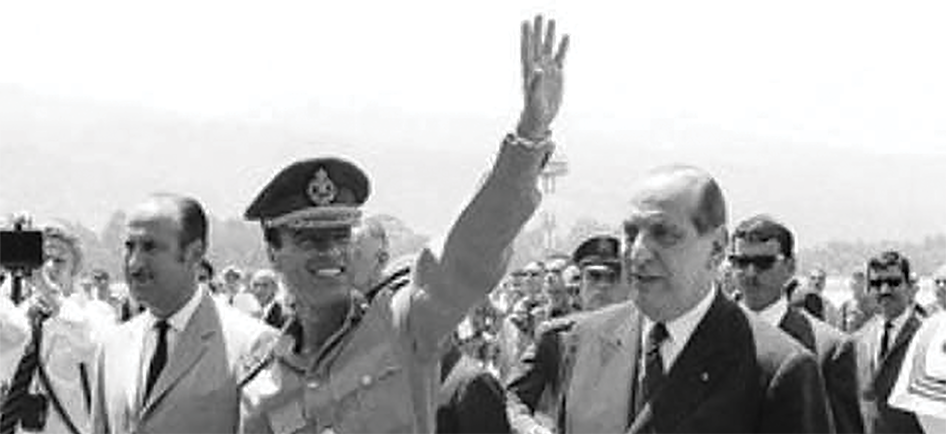INSTABILITY: The Libyan people, who once proudly called Libya their home, now struggle under conditions of chaos and foreign control…
By Mafa Kwanisai Mafa
On the September 1 2025, the people of Africa and the world mark the 56th anniversary of the Great Al-Fateh Revolution of Libya, a pivotal event in modern history that changed the fate of a nation and inspired oppressed peoples worldwide.
It was on the early morning of September 1 1969 that the Free Patriotic Officers Movement, led by Brother Muammar Gaddafi, seized power in a peaceful revolution.
This historic moment ended the rule of King Idris, who had governed Libya since its independence and self-rule in 1951. Before that independence, Libya had endured the pain of being an Italian colony.
The Al-Fateh Revolution was not a coup devoid of meaning; it was a profound response to the demands and aspirations of the Libyan people. For years, Libyans had lived under a corrupt and oppressive monarchy, one described as nothing short of an imperial epilepsy.
The wealth of the nation, especially its oil resources, was siphoned away to enrich the ruling class and foreign interests, while the majority of citizens languished in poverty. Against this backdrop of inequality and subjugation, the revolution brought a new dawn.
The name Al-Fateh was drawn from a Surah in the Holy Qur’an, symbolising victory over injustice and oppression and the dawn of freedom and dignity for humankind. Like the revolutions in Cuba, Venezuela, Iran, North Korea, Nicaragua, and the Sahel region of Africa, the Libyan revolution resonated with the masses.
It was celebrated by ordinary people, not only in Libya but also across Africa, the Caribbean, Latin America, and other regions of the world. It inspired solidarity and admiration from politicians, activists, revolutionaries, freedom fighters, lawyers, economists, engineers, educators, media workers, and many others.
For those born in Libya or with roots in the nation, it renewed a deep sense of pride and identity.
The revolution swiftly abolished the monarchy, nationalised Libya’s oil resources, and dismantled foreign military bases and companies that had long dominated the nation.
It was a relief for Libyans, marking the end of foreign remote control and ushering in an era where the country’s wealth was channelled towards the needs of its people.
The revolution also introduced an innovative system of governance known as the Jamahiriya, or the state of the masses, in which Libyans exercised direct authority over their political, economic, and security affairs.
Traditional structures of governance were replaced with a more inclusive process where the people governed themselves. Under this model, which was better articulated in Muammar Gaddafi’s Green Book, Libya came to be regarded as practising one of the most genuine forms of democracy in the world.
The Al-Fateh Revolution was seen by many as a Biblical Daniel, bringing justice to Africa and its peoples. It was this independent path that made Libya a declared threat to imperial interests. The United States, in particular, repeatedly accused Libya of sponsoring terrorism, charges based on fictitious and unfounded claims.
Yet history has shown, through wars in Iraq, Syria, Lebanon, Yemen, Afghanistan, Sudan, Somalia, and beyond, who the real promoters of terrorism are.
Revolutionary Libya was also accused of dictatorship, another political fabrication designed by imperial powers to destroy the Libyan revolutionary process and erase its achievements.
The most brutal expression of this hostility came in 2011. Fourteen years ago, the United States, Britain, and France orchestrated a violent invasion of Libya. NATO forces launched nine months of relentless bombing, unleashing hundreds of thousands of cruise missiles, mines, and depleted uranium bombs.
The attack destroyed infrastructure, killed more than a million Africans, and orphaned millions more across the continent. On Libyan soil, this campaign of terror culminated in the brutal murder of Muammar Gaddafi, who was transformed into a martyr for his people and for the cause of global resistance.
The Al-Fateh Revolution, after resisting valiantly, was wrecked under the weight of imperial aggression.
Today, Libya stands as an occupied, neo-colonial outpost of imperialism, a far cry from the dignity and independence it once enjoyed. The collapse of the revolution did not bring peace, democracy, or stability, as promised by the invaders.
Instead, it created a power vacuum that plunged the nation into unending violence. Terrorist organisations such as Al-Qaeda and its affiliates now trade in human misery, using Libya as a staging ground for transnational organised crime.
The people who once proudly called Libya their home now struggle under conditions of chaos and foreign control.
Yet, even amid these dark times, the legacy of the Al-Fateh Revolution lives on. It is remembered for laying the foundation of a people-centred state and for daring to challenge imperial domination. – The Pan Afrikanist
It is saluted for the courage of those who risked their lives on 1st September 1969 to usher in a new dawn, and it continues to inspire the global resistance to imperialism, racism, terrorism, and oppression. The spirit of the revolution finds echoes today in the struggles of the Alliance of Sahel States, Mali, Burkina Faso, and Niger, whose leaders are asserting sovereignty and challenging foreign domination, just as Libya once did.
The memory of the revolution is also a reminder of the cost of betrayal and the dangers of imperial plots. The destruction of Libya stands as a testament to the ruthless lengths to which imperial powers will go to protect their interests and crush independent nations.
It underscores the urgent need for Africans and progressive peoples worldwide to draw lessons from Libya’s experience, to resist the machinations of foreign powers, and to continue the struggle for freedom and dignity.
As the fifty-sixth anniversary of the Al-Fateh Revolution is marked, the call resounds across Africa and the world: to remember, to resist, and to rebuild. Long live Libya, long live the spirit of Al-Fateh, and long live the struggle against imperialism. – The Pan Afrikanist


































